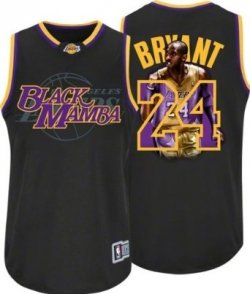We might argue about the best way to get there, but certainly at this point you'd be hard pressed to find anyone in the Human Resources, Benefits, or Talent Management space that has not firmly bought in to the importance of employee wellness.
The arguments in support of the organization actively promoting more healthy behaviors in and out of the workplace are familiar and numerous - increased productivity, reduced health care costs, less absenteeism, and more. And forget about the data - it just makes sense intuitively that when people make consistently better choices about diet, exercises, taking routine physical exams, and simply being more conscious about their health; then they will be happier, feel better, and will do better at work and in the community.
Sure, there are (valid) differences in opinion about the most effective employer wellness strategies and the proper role of the organization in what are often employee's personal matters and decisions, but overall, it seems to be little argument about the ultimate goals - a healthier, higher-performing workforce. And while the strategies, programs, and solutions might differ, there are still some basics in the employee wellness discussion that most all employers do agree on, particularly when it comes down to some basic human behavioral choices and habits that from decades of study have been shown to be incredibly harmful and detrimental to health; with tobacco use being the obvious example.
Whether it's cigarettes, chew, dip, maybe even cigars - we know we don't want our employees partaking, either at work or in their personal lives, the risks are too high, the costs are too great - essentially nothing good results from employee tobacco use.
Unless of course the ramifications of quitting tobacco use are too high.
What? How can that even make sense?
Check this piece from ESPN.com, about the Texas Rangers baseball star Josh Hamilton, his decision to quit chewing tobacco during the season, and the subsequent reactions from team management. From the ESPN piece:
Rangers' CEO Nolan Ryan said the timing of Josh Hamilton's decision to quit smokeless tobacco this summer "couldn't have been worse."
"You would've liked to have thought that if he was going to do that, that he would've done it in the offseason or waited until this offseason to do it," Ryan said during an appearance on ESPN Dallas 103.3 FM's "Galloway and Company" this week. "So the drastic effect that it had on him and the year that he was having up to that point in time when he did quit, you'd have liked that he would've taken a different approach to that."
Hamilton, who began his quest to quit dipping in late June, admitted in August that he was dealing with a "discipline" issue and said it was discipline at the plate and discipline in "being obedient to the Lord in quitting chewing tobacco."
His struggle with tobacco coincided with the one at the plate. After earning AL player of the month honors in April and May, Hamilton hit .223 in June and .177 in July and had eight homers and 27 RBIs combined in those two months. He had belted 21 homers and driven in 57 RBIs in the first two months of the season combined.
Got all that? For the non-baseball fans out there, let me break it down.
Hamilton is an incredibly high-performer, one of the very best in the entire industry, 'top talent' so to speak. But he has some bad habits, chewing tobacco, (common among baseball players), among them. He elects to quit chewing tobacco, a decision everyone should applaud, and almost immediately his performance begins to slide. Quitting tobacco use is really hard for many, and it seems for Hamilton the side effects and strain it put on him personally negatively impacted his job performance. Then after the season concludes, and the Rangers fail to advance in the playoffs, the team CEO, Ryan, publicly questions perhaps not Hamilton's choice to quit chewing tobacco, but certainly the timing of the choice.
Essentially the CEO is saying - 'Quit your bad, unhealthy habits on your own time, we need to win ballgames here.'
Maybe this is another one of those classic 'sports are not the real world' kinds of stories, and it is not a big deal, nor applicable to 'normal' workplaces and jobs and I should not bother posting about it. But I suspect there might be more relevance than we might see at first look.
Baseball is not the only business with lots of pressure, deadlines, and intense periods of focus followed by some relative downtime. Instead of a chase for a World Series, maybe in your organization it is a crazed rush to meet a customer deadline, to ship a product by a promised date, to get Ms. Big Shot executive ready for he speech to your industry's largest trade show.
Whatever the case, success usually requires everyone on the team to be at the top of their game.
When Hamilton made the correct decision for his health, he seems, at least in the CEO's eyes, to have made the wrong decision for the team.
I wonder if in similar circumstances, what you would do if you were the CEO or the Project Leader and one of your key staff, perhaps even the best and most talented employee you have, took the same kind of decision as Hamilton?
Would you try and support and help the employee work through this process, knowing in the long run it is better for everyone?
Or would you pass the Copenhagen and tell everyone to focus, we have a deadline to meet?

 Steve
Steve



